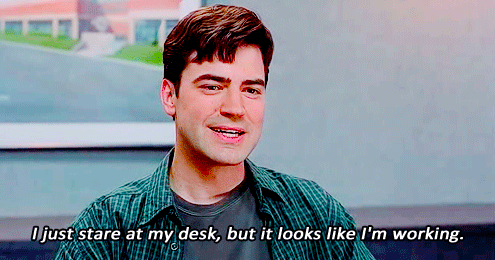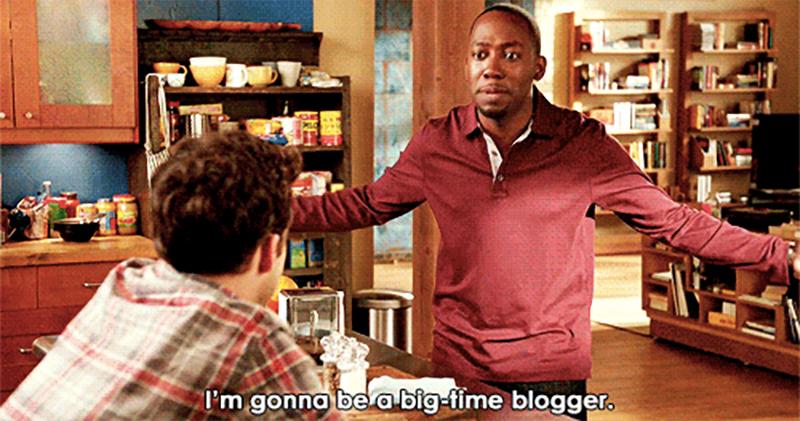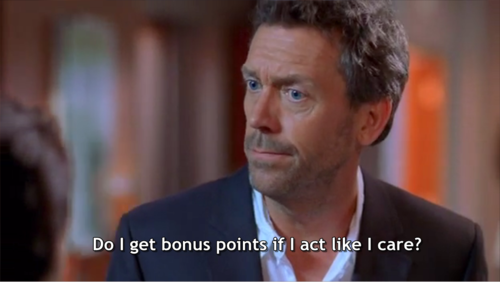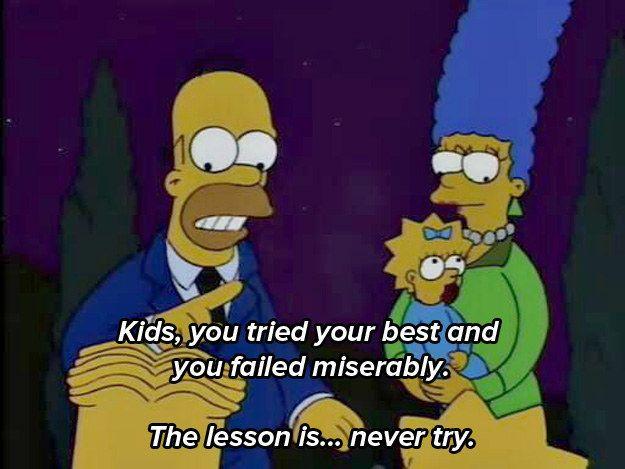10 Psychological Facts That Might Explain Why You’re Feeling Unmotivated Today
<p>A few reasons (backed by science) for why you feel like you can't accomplish anything today.</p>
Updated April 10 2020, 3:36 p.m. ET

There's a good chance you're reading this article to procrastinate from doing something more important today. I mean, that's sort of the point of this site, right? But if you're clicking your way through a rabbit hole of viral news stories while wondering how to stop the madness, it's important to look at the source of your behavior. In other words, if you're feeling unmotivated, there's probably a psychological reason why.
The internet is full of "psychology hacks" to help people fix certain mental roadblocks, whether it's being a more likable, sociable person or becoming more successful and happy. But you're not going to get anywhere if you don't pinpoint the "whys" first. Only once you understand why you can't stop looking at Facebook, can you start fixing your issues with feeling more motivated.
Below, a few reasons (backed by science) for why you feel like you can't accomplish anything today.
You feel forced to complete the task.

If the goal you're trying to accomplish today is something you don't want to do but something you have to do, you might be less motivated to do it. In the psychology world, they call this "resistance," and people resist doing things when they feel like they have no choice in the matter. According to psychologists, people feel more motivated when they feel they're in charge of a task. Having more autonomy tends to increase people's energy levels and make them more productive.
OK, so what should I do about it?
There are some things in life you're going to have to do regardless. A good way to get around this is to change your thinking pattern from "I have to" to "I choose to." If you don't want to go to the gym, reminding yourself of why you're going is a good motivator to do so.
You keep telling people your goals.

This might sound a little surprising considering plenty of blogs and self-help gurus usually advise the opposite. If you tell your friends your goals, they'll hold you accountable to them, right? Apparently, according to studies, this theory is wrong. If you tell your friends your goals, you're less likely to finish them or even feel motivated to complete them.
According to a 1982 Peter Gollwitzer study, participants who share their goals with others subconsciously believe the goal is completed simply because they told someone. Because of this, they're less likely to complete their goal because their mind thinks it's already been completed. Brains are weird, eh?
OK, so what should I do about it?
Contrary to popular opinion, try keeping major goals and tasks to yourself if you want to stay more productive.
You had strict parents growing up.

Finally, something you can blame your parents for! But seriously, according to a study, you're more likely to procrastinate if you had strict parents growing up, especially if you're a woman who had a strict father. Because of the rigid upbringing, some people procrastinate as a subconscious form of rebellion against their parents.
OK, so what should I do about it?
Therapy? Deep, chronic behaviors will take more than an internet article to correct. (Sorry.)
Your goal is too big or unrealistic.

It's great to set goals for yourself, but if they're too unattainable, you're going to have a much harder time staying motivated when the bar is set so unrealistically high. "They're so big. They're so distant," Harvard psychologist Amy Cuddy says. "They require a million little steps in between, and each of those little steps is an opportunity to fail."
OK, so what should I do about it?
Focus more on making short-term goals and accomplishing those first. It's more about the process, not the end goal.
You don't care that much about the incentives.

For most people, their tasks have external incentives attached. For example, if you complete your work or hit a certain quota, you'll get a bonus from your boss. These are are called "if...then" motivators, and they're not very good for when you're trying to complete more long-term or creative tasks. If anything, researchers have found that it leads to worse performance.
OK, so what should I do about it?
Switch to one of the three intrinsic reasons for motivation, which are autonomy, mastery, and purpose. By attaching more personable reasons for finishing a goal, like choosing to complete a task by choice or choosing to complete a goal out of a sense of passion, you're more likely to finish and feel good about it, too.
You feel like you're not making a difference.

In addition to "internal" motivators, psychologists say having a purpose in your goal is a good way to drum up motivation. For some people, having a purpose, especially when it comes to their work, is determined by how well their work affects other people.
According to a study run by psychologist Adam Grant, students who worked at a fundraising call center spent way more time on the phone than necessary because they subconsciously thought they were making a difference, which boosted profits by 171 percent.
OK, so what should I do about it?
Try speaking or interacting with people who are affected by your work. Tracking the results by seeing how it affects others will help you see the bigger picture.
You have a low level of self-efficacy.

Self-efficacy is the belief you have in your own abilities. It's sort of like self-esteem except it's attached more to your actions and what you think you can achieve. Obviously, those with high self-efficacy are more likely to be motivated and accomplish their tasks because they have higher confidence in their ability to achieve their goals.
OK, so what should I do about it?
Increasing your self-efficacy isn't something that can be fixed overnight, but you can start by altering your subconscious through affirmations. According to a study, people who repeat positive affirmations are more likely to feel energetic about achieving their goals.
You're simply visualizing success, which isn't enough.

Although positive thinking is a good habit to practice, psychologists say that if you're trying to get motivated, you won't achieve your goals just by visualizing the end result. In fact, according to a study, visualizing too much simply drains your energy and makes you feel less likely to accomplish anything.
OK, so what should I do about it?
Practice the art of mental contrasting. To do it, simply visualize your goal and also visualize all the setbacks and limitations that'll arise while trying to attain said goal. You'd think this trick would demotivate you, but it actually has the opposite effect. Weird, huh?
Your arousal levels are out of whack.

And no, I'm not talking about sexual arousal but neurological ones. According to the arousal theory of motivation, people do certain things to align their arousal levels when they're feeling too low or too high. So, for example, if you're feeling overstimulated, you might procrastinate by looking at cat gifs to destress. It also works in reverse. If you're under stimulated, you might go out with friends or do something energetic.
OK, so what should I do about it?
If you feel yourself getting frustrated, irritable, or just straight-up bored with your task, go take a walk or go the gym. By taking your mind off the task at hand, it'll help you better align your motivational needs once you're ready to return to your work.
You're taking things too personally.

A huge road blocker to motivation is getting trapped in your feelings, especially if you had your work negatively criticized by a boss or professor. Getting over the rejection isn't always easy for some people, but ultimately, getting too wrapped up in your emotions makes you unproductive. "Taking things personally keeps you tied to someone else,” psychiatrist Abigail Brenner wrote in Psychology Today.
OK, so what should I do about it?
Create space between yourself, your work, and the person who hurt your feelings. At the end of the day, how much does this person really matter to you? Once you realize their criticism isn't personal, you can more easily find the motivation to complete your goal.
Feeling more motivated? Hopefully you can go out and accomplish something. Remember, it's never too late.